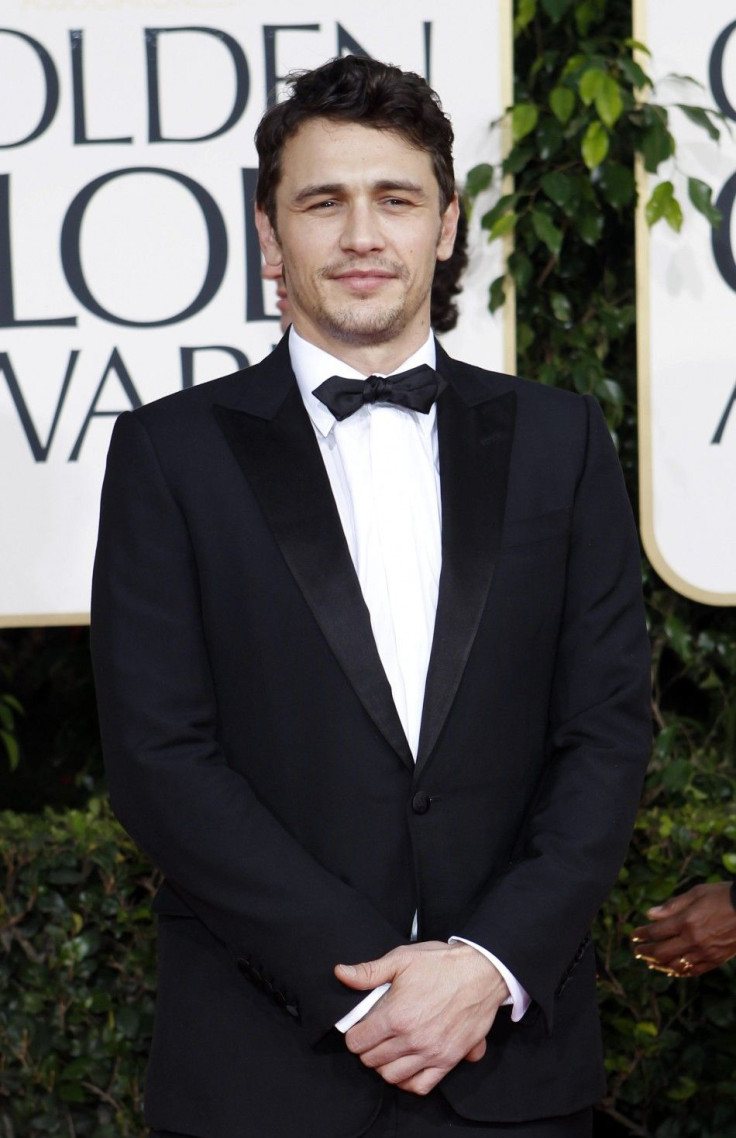James Franco Talks Poetry And His Latest Film, 'The Broken Tower'

Artistic savant James Franco has displayed an aptitude for juggling creative projects. The actor, director, screenwriter, novelist, scholar, and adjunct professor is the epitome of the hipster intellectual.
So when it came time to direct his New York University thesis film, Franco had little to prove. While most film students use their final projects as a means of showcasing their abilities, Franco was exempt from such concerns. For this reason, he chose to make a movie about a 20th century poet few remember today. Currently in limited release, The Broken Tower depicts the taut life of Harold Hart Crane.
Franco's sagacious familiarity with Crane's work began when he undertook literature studies at the UCLA. While attempting to make sense of Crane's cryptic verses, the actor discovered Paul Mariani's biography, The Broken Tower: The Life of Hart Crane. The bio illustrates the perils of Crane's personal life, which included being a closeted homosexual.
For nearly a decade, Franco was eager to adapt the book for the screen. While attending the NYU film school in 2008, he began directing short films based on poetry. Using the skills he cultivated in this fertile ground, he finally set out to capture Crane's life and work in a narrative feature.
The film version of The Broken Tower is a subtle biopic with elements of Crane's verses woven into it. Franco uses imagery, spoken word, and voice-overs to convey such poems as To Brooklyn Bridge and My Grandma's Love Letters. A major challenge for the director was portraying poetry that has been difficult for many to comprehend.
For Franco, the movie was a way to probe the meaning of Crane's work. He told the International Business Times: It's not just about the surface level -- it's about the way that the secondary meanings of the metaphors are kind of resonating with each other. As weird as that sounds, it's more like music in a way.
The Broken Tower follows an episodic structure that displays significant moments in Crane's life, such as his suicide attempts, spurned love affairs, and various mundane jobs. Franco's overall intention when structuring the film was to provide insight into Crane's emotional journey and unmitigated craft.
Franco said: I wanted the texture of the film to feel like the texture of his poetry. That's why you get the movie the way it is, in these episodic sections that hopefully give you information about his life, just like some of the poems do. They're all autobiographical bits in the poems, but they're working off each other in certain ways.
The film is clearly an indulgent cinematic venture for Franco, who is seldom concerned with the commercial appeal of his projects. Furthermore, it displays his willingness to develop and star in films about the gay experience.
Ondi Timoner, who is set to direct Franco in the upcoming Mapplethorpe (about the life of photographer Robert Mapplethorpe), is in awe of Franco's fearless portrayals of unconventional characters and gay men. She told the IBTimes: I just think he's astounding. He pushes the visual-arts boundaries. He's anxious to play roles that are controversial and exploring their sexuality. He's taken on a number of gay roles, and he's fine with that. That's very hard to find in a heartthrob.
Although Franco has faced his share of criticism, he has been accorded a degree of respect in the film community. He is currently pursuing a doctorate at Yale University -- to complement his master's degrees from both Columbia University and NYU -- while doing steady film work. In the past year, he has released The Broken Tower; shown his film My Own Private River (a recut version of 1991's My Own Private Idaho); premiered his documentary Francophrenia at the Tribeca Film Festival in New York; and signed a book deal with Amazon.com.
Thus, it's clear the Saturday Night Live parody version of Franco had a point when he famously remarked, I haven't slept in two years.
© Copyright IBTimes 2024. All rights reserved.





















